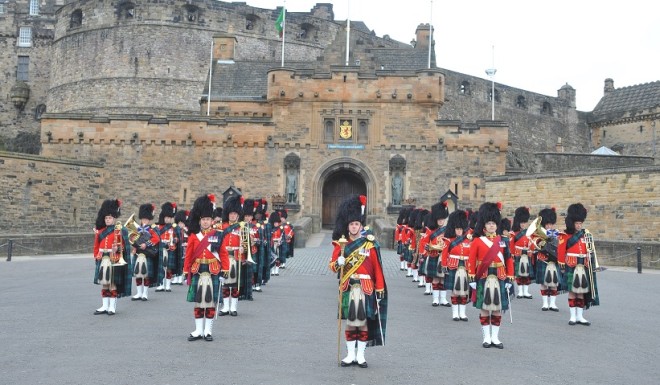
Musical flair: military bands are poised to unveil the age-old weapon of music in Hong Kong
People’s Liberation Army, the Hong Kong Police and the Hong Kong Association of Choral Societies bands will march into Hong Kong for an extraordinary gathering of musical might
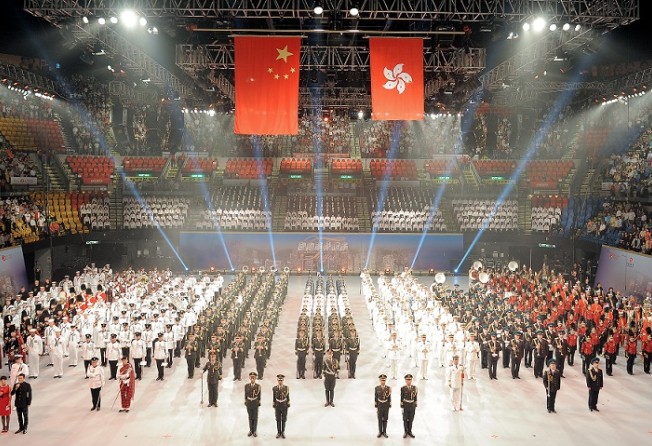
Together with guns, tanks, trained personnel and military strategy, every army around the world has another, not so secret weapon – music.
It probably started thousands of years ago with drums, branching out to brass instruments, fifes and in some cases bagpipes, giving a rhythm to armies on the move, and either giving a blast of courage to soldiers going to battle, or helping them fill the long periods of waiting and downtime.
Today, there is still the need for music, but the types of music have changed.
“What would have been stirring to soldiers 100 years ago is different now,” says Major Dave Barringer, bandmaster to the Royal Regiment of Scotland.

“A young 20-year-old soldier is not listening to military bands on his or her headphones. So in 2013 we had a rethink about what the future of army music would be for 2020.”
The British services today include the military marching bands people expect, as well as pipes and drums for each battalion. They also include big bands, jazz trios, brass bands, a symphonic wind band, folk, guitar, pop and rock groups and ceilidh (playing Scottish dance music).
All the musicians are fully trained to fight in battle although most were recruited for their musical ability, much as engineers and pilots and athletes are also recruited for their skills.
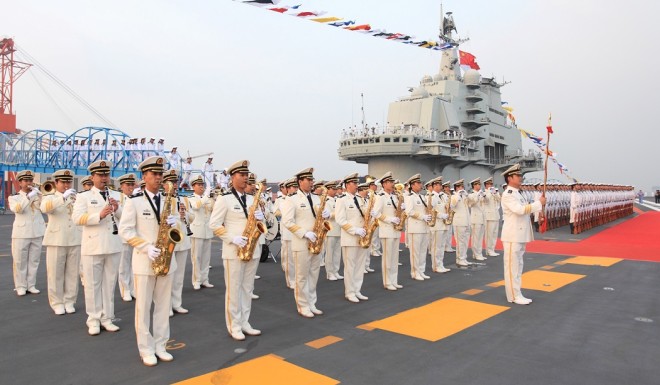
“We're all soldiers first,” says 44-year-old Barringer. He was a tuba player from Yorkshire, recruited at 16 into the Coldstream Guards and taking musical roles in different regiments before becoming as bandmaster of the Royal Regiment of Scotland.
The men and women of the regiment bands also have an important community role, playing a key part in the Royal Edinburgh Military Tattoo, the most famous military music event in the world.
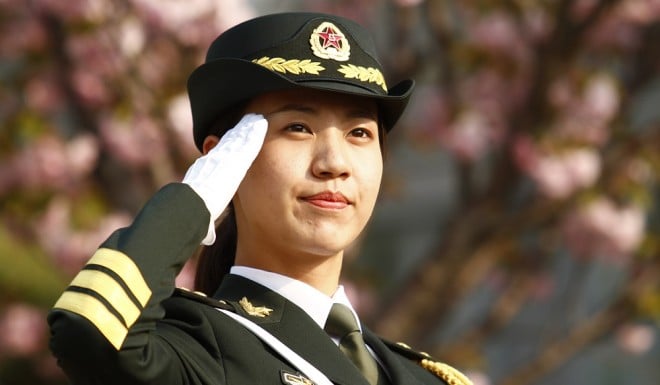
With nearly a quarter of a million visitors each August, it is a show that includes pomp, music, precision and fireworks in the splendid surroundings of Edinburgh Castle.
The word tattoo – in the military rather than the body inking sense – comes from the Dutch “do dem tap toe” – turn off the beer taps – and apparently refers to the drumming in military towns to ask pub landlords to stop serving beer to the soldiers.
The Dutch Military Tattoo, which takes place in the Netherlands each year, is still called the Nationale Taptoe.
The Edinburgh Tattoo has been running since 1950, and since 1952 has been inviting overseas regiments to join in, including the People’s Liberation Army in 2015.
The two bands will meet again at the Hong Kong Coliseum this July for International Military Tattoo to mark 20 years of Hong Kong’s return to China.
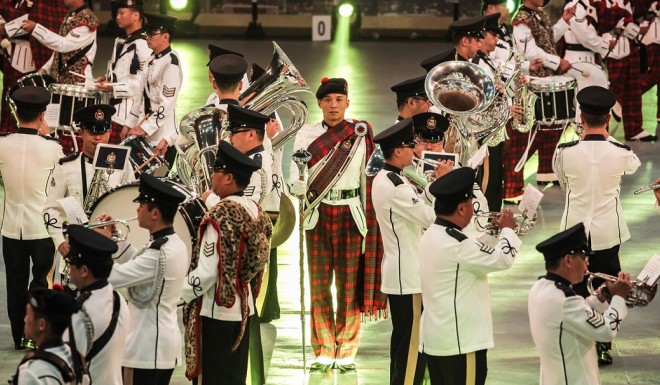
Hong Kong’s military tattoo will be an extraordinary gathering. The host musicians include four People’s Liberation Army military bands, the Hong Kong Police Band and the Hong Kong Association of Choral Societies.
They will be joined by The Central Military Band of the General Staff of the Mongolian Armed Forces, the Band of the Royal Netherlands Army Mounted Regiments. The Brass Band of the Red-Banner Eastern Military District's Headquarters (Khabarovsk) from Russia, the Band of the Royal Regiment of Scotland (with the Pipes and Drums of the 7th Battalion), and the United States 7th Fleet Band.
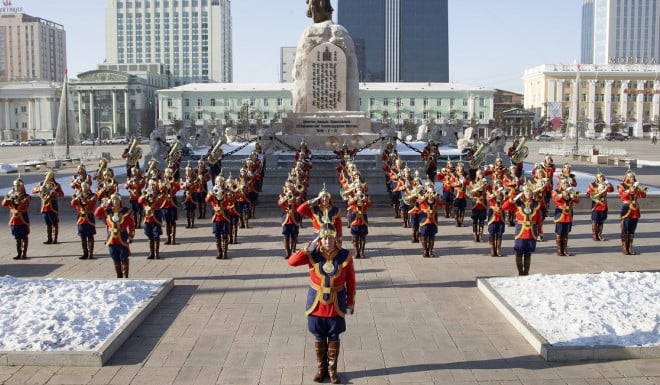
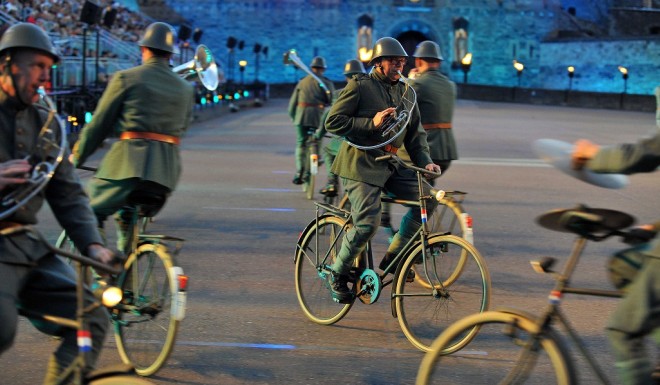
This will be an important symbolic event for the Scots. The Queen’s Own Highlanders were stationed in Hong Kong from 1980 to 1981; the Black Watch (Royal Highland Regiment) were here from 1993 to 1994, and returned in 1997 for the handover.
All the Scottish regiments were amalgamated in 2006 into the Royal Regiment of Scotland but there is a sense of continuity, as Scottish military bandsmen were among the musicians who piped and drummed the British administration as it left Hong Kong on the rainy night of June 30, 1997.
“We’re hoping that weather is not repeated,” Barringer says.
As a musician, playing in an event like this is “the best thing in the world. There’s a massive crowd. You’re always well received.”
There’s always a lot of waiting backstage and the chance to chat with other band members from very different countries and cultures.
“We’ll be finding out what life is like as a musician in the various different armies.”
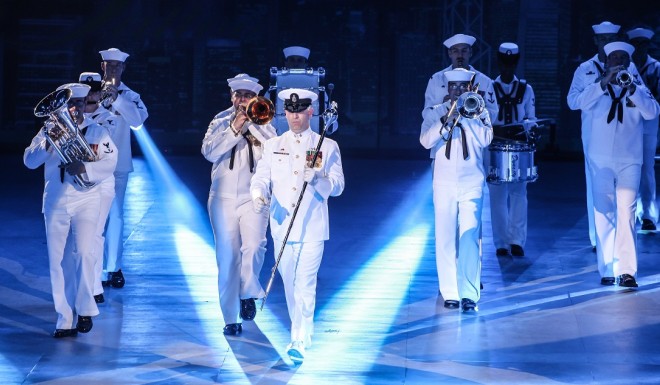
Ten years ago they were playing with a Thai Military Band. “We got on well; we swapped cufflinks, I remember.”
He’s still Facebook friends with musicians from other armies he has met at these big tattoos around the world. And some of this networking will play out at other events in the future.
Each band just plays for 10 minutes on its own, so the repertoire is easy to choose.
“I was given a piece of advice early on,” Barringer says. “Don’t take coals to Newcastle. We’re a Scottish band, people want to hear Scottish music.”
So they will be playing the big hits. Loch Lomond on the bagpipes; Scotland the Brave.
“And the one thing we had to play was [Beethoven’s] Ode to Joy, which was played by the Black Watch in 1997 at the handover, and which we will play again, 20 years later, to give a kind of continuity.”
At the end of any tattoo, there is a grand finale, of all the bands, coming together to play music that is relevant to the place they are playing in, whether that is Edinburgh, Hong Kong, Mongolia, Russia.
It symbolises, in a joyful way, that the aim of an army is to make harmony rather than war.
“Music is an international language, but each band is different,” Barringer says.
“It’s not just the music. It’s the style. When the Dutch army band appears at a military tattoo, they’re all on bicycles. It’s brilliant.”
International Military Tattoo: